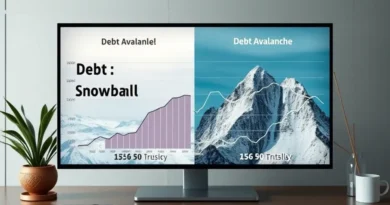How to Deal with Debt Collectors the Right Way
Dealing with debt collectors can be a stressful and overwhelming experience. Whether the debt is valid or not, it’s crucial to handle the situation correctly to safeguard your rights and avoid unnecessary complications. In this guide, we’ll explore the best practices for interacting with debt collectors, understanding your rights, and ultimately finding a path to financial recovery.
Understanding Your Rights
Before engaging with debt collectors, it’s essential to understand your rights. The Fair Debt Collection Practices Act (FDCPA) is a federal law designed to protect consumers from abusive debt collection practices. Under the FDCPA, debt collectors are prohibited from:
- Harassing or threatening you
- Calling you at inconvenient times (before 8 a.m. or after 9 p.m.)
- Using false, deceptive, or misleading representations
- Contacting you after you have requested they cease communication
By understanding these regulations, you empower yourself during conversations with collectors and ensure that they behave within the law.
Stay Calm and Collected
When you receive a call from a debt collector, it’s vital to remain calm. They may use aggressive tactics to provoke an emotional response, hoping to pressure you into making payments without fully understanding the situation. Take a deep breath and approach the conversation with a clear mind. Remember, you have the right to request validation of the debt before making any payments.
Request Debt Validation
Once a debt collector contacts you, the first step is to ask for a debt validation letter. This letter must detail the amount owed, the name of the creditor, and other pertinent information that legitimizes the debt. Under the FDCPA, consumers have the right to request this validation within 30 days of receiving the initial communication from the collector.
If the debt collector doesn’t provide this validation, they cannot legally pursue the debt further. This step is crucial for those who may not recognize the debt being collected or believe it is inaccurate.
Document Everything
When dealing with debt collectors, it’s imperative to keep detailed records of all communications. Create a file containing:
- Any correspondence from the debt collector
- Notes of phone conversations, including dates, times, and issues discussed
- Your responses to debt collection attempts
- Any payments made and the confirmation received
This documentation will be vital in case of a dispute or if you need to escalate the situation.
Know When to Negotiate
Once you have confirmed that the debt is valid, you may want to consider negotiating a settlement. Collectors often buy debts for a fraction of their value, so they may be willing to accept a lower payment to settle the account. Here are a few tips for effective negotiation:
- Have a reasonable amount in mind that you can afford to pay.
- Start with a lower offer, as they may counter with a higher amount.
- Get all agreements in writing. Do not send money until you have a written agreement.
- Be polite but firm; negotiations can sometimes become tense.
Negotiating a settlement can help you save money and allow you to clear the debt without impacting your credit for as long as full payment would have.
Explore Alternatives
If the situation becomes overwhelming, consider seeking assistance from a credit counseling service. Nonprofit credit counselors can help you assess your financial situation and suggest strategies for dealing with debt collectors. They may also assist you in negotiating terms with creditors to make payments more manageable.
Additionally, bankruptcy is a more drastic option but can provide relief from overwhelming debts. This process should be thoroughly researched and discussed with a financial advisor or attorney to understand the consequences fully.
Handling Legal Action
If a debt collector proceeds with legal action against you, it’s crucial to take it seriously. You have the right to respond to summons and defend yourself. Consult a lawyer specializing in consumer law for assistance. They can guide you through your options and help you formulate a defense.
Always remember that ignoring the situation can lead to worse consequences, including wage garnishment or bank levies.
Conclusion
Dealing with debt collectors can be daunting, but knowing your rights, staying calm, and being proactive in your approach can make all the difference. By using the techniques outlined in this guide, you can effectively navigate the debt collection process, ensuring that you’re treated fairly while working towards financial stability.




